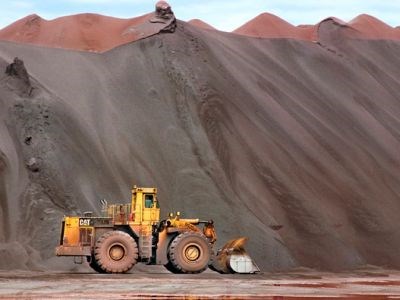It’s no surprise to steel industry analyst Peter Warrian that the volatility in the global steel and iron ore industry has swept up Essar Steel Algoma and its raw material supplier, Cliffs Natural Resources.
The decision by the Cleveland-based iron ore miner in October to terminate its pellet contract with the Sault Ste. Marie steelmaker is “very rare, historically,” said the senior research fellow at the University of Toronto’s Munk School of Global Affairs, but not shocking given the calamitous state of affairs in the mutually dependent industries.
Cliffs announced Oct. 6 that it was terminating a vital iron ore supply agreement with Essar, blaming the steel company for “multiple and material breaches” under a pellet sale and purchase agreement.
Cliffs, most noted in the North for an ill-fated attempt to develop a James Bay chromite mine, is the main supplier of taconite pellets to Essar. But the 168-year-old mining company is in full survival mode with iron ore prices at historic lows.
Essar immediately responded by filing a temporary restraining order against Cliffs in the United States District Court of Northern District of Ohio, a move supported by United Steelworkers Local 2251.
No comment was forthcoming from Cliffs, but Essar spokeswoman Brenda Stenta expected a “swift ruling” on the matter. “There is no immediate impact to operations,” she replied in an email.
“Broad-brush, the steel industry has entered into a restructuring crisis,” said Warrian, “but the iron ore segment is in chaos,” with iron prices dropping by 75 per cent since June 2014. Supply contracts “are being contested and voided all over the place.”
In recent years, the two companies have endured an acrimonious and litigious relationship with Cliffs previously accusing Essar of breach of contract. But the supply agreement remained intact until this fall.
Though not aware of the inside circumstances, Warrian said it’s plausible that this latest dispute could involve Essar attempting to renegotiate the contract.
What’s contributed to the destabilization in pricing, he said, was the decision by many iron ore suppliers to go to short-term supply contracts with quarterly and monthly pricing, instead of long-term contracts with annual pricing.
Much of it was fuelled by overly optimistic forecasts that the Chinese economy, and the Asian demand for steel, would continue to surge into 2030, which resulted in an over-expansion of iron ore production in Australia.
Further heightening the tension between Cliffs and Essar is that are also shaping up to be mining competitors in northern Minnesota.
Essar is building a controversial and heavily state-subsidized US$1.9-billion iron mine, processing mill, and direct-reduction production plant in Nashwauk on the Mesabi Iron Range. Pellet production is expected to start in the second half of 2016.
Outspoken Cliffs CEO Lourenco Goncalves has been openly critical of the Essar project, telling Minnesota media outlets that Nashwauk will harm his company’s operations and produce a glut of taconite on the market.
“I don’t think that’s unrelated to this move,” said Warrian.
Essar Steel emerged from bankruptcy protection a year ago with both Ottawa and Queen’s Park giving millions to upgrade the Sault plant that its parent company bought in 2007.
But the situation doesn’t appear to be improving as 100 workers were laid off this fall as the company seeks to cut costs.
When news broke of this latest Cliffs-Essar rift, Standard & Poor’s Rating Services delivered a hit to Essar’s credit rating, downgraded the company from “CCC +” to “CCC -.”
In an Oct. 8 release, the ratings firm said soft demand for hot-rolled sheet (Essar’s main product), depressed steel prices, overcapacity in the global steel industry, and high imports into North America is to be blamed for the company’s perilous cash position, which is being described as “weak.”
With S & P forecasting steel prices to remain soft into 2016, it expects Essar will face a liquidity crisis within six months unless its Indian parent company rides to the rescue again with more financing or it sells off some assets.




